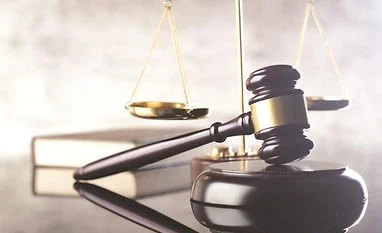The Supreme Court (SC) has instructed all High Courts across the country to establish two-judge committees responsible for implementing the recommendations of the Second National Judicial Pay Commission (SNJPC), according to a report by Bar and Bench. The SNJPC is concerned with the salaries and service conditions of members of the district judiciary. This move is aimed at addressing the grievances of judicial officers and ensuring financial dignity for judges.
The bench, comprising Chief Justice of India (CJI) DY Chandrachud, Justices JB Pardiwala, and Manoj Misra, spoke on the need for judges to be appropriately compensated to ensure that they could lead a life with financial dignity that also safeguarded their judicial independence.
The court also emphasised that judicial service should not be equated with the service of other state officers, given the distinct functions, duties, restrictions, and restraints applicable to members of the judicial service.
As part of the directive, the court ordered the formation of a committee in each High Court named the "Committee for Service Conditions of the District Judiciary".
Composition of the Committee for Service Conditions of the District Judiciary
The composition of the Committee for Service Conditions of the District Judiciary must include two judges of the High Court nominated by the Chief Justice, one of whom should be a judge with prior experience in the district judiciary.
Additionally, the Law Secretary/Legal Remembrancer, the Registrar General of the High Court (ex officio Secretary of the Committee), and a retired judicial officer in the cadre of District Judge nominated by the Chief Justice to act as a nodal officer for daily grievance redressal.
More From This Section
The senior-most Judge nominated by the Chief Justice of the concerned High Court will serve as the chairperson of the committee. The chairperson has the discretion to co-opt state government officers, including secretaries in the departments of home, finance, health, personnel, and public works, when deliberating on issues concerning these departments.
The committee may also co-opt the accountant general to ensure the proper implementation of SNJPC recommendations.
Function of the Committee for Service Conditions of the District Judiciary
The committee's functions include overseeing the proper implementation of the SNJPC recommendations related to pay, pension, and allowances. This would serve as a single-point nodal agency for redressing judicial officers' grievances, developing an institutional mechanism for recording and archiving concerns about pay, pension, and service conditions of the district judiciary, and ensuring the empanelment of hospitals meeting necessary standards for every district in consultation with the state government's health department.
The SC also directed that disbursements for arrears of salary, pension, and allowances due to judicial officers, retired judicial officers, and family pensioners should be computed and paid on or before February 29, 2024. High court committees are tasked with monitoring compliance, and each committee is required to submit its report to the SC through the registrar general of the high court by April 7, 2024.
)